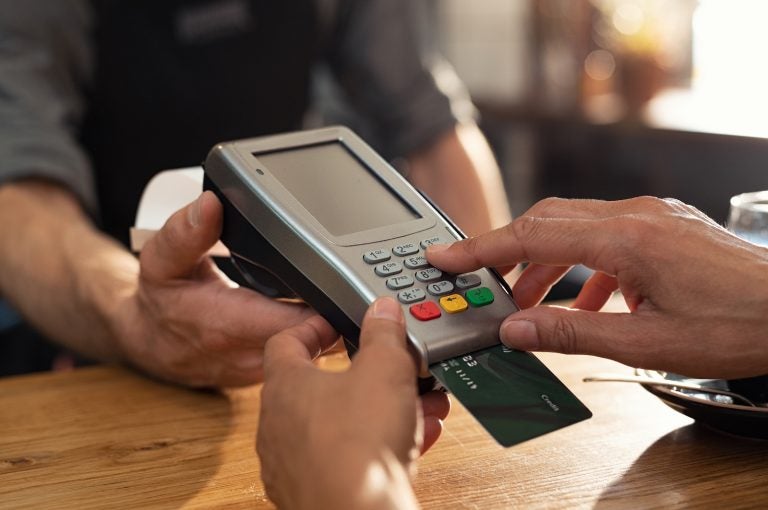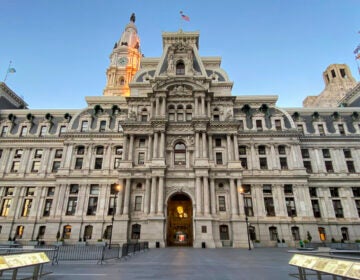Philly City Council votes to ban cashless stores
Philadelphia City Council voted Thursday for a bill that would ban most city stores from going cashless.

Some businesses will only allow credit card transactions. (Rido81/BigStock)
Updated: 2:31 p.m. EST
This story originally appeared on PlanPhilly.
—
Philadelphia City Council approved a bill Thursday that would ban most city stores from going cashless.
Businesses like Sweetgreen, a salad chain that only takes plastic, could face fines up to $2,000 if Mayor Jim Kenney signs it into law. The proposed ban doesn’t apply to online shopping or membership-based stores like Costco.
“It seems like in a regular commercial establishment, people should be able to buy the product if they have the means to buy the product,” said Bill Greenlee, the bill’s sponsor. “It just seems unfair to have that separation. It’s almost like an us and them.”
Greenlee and his supporters say cashless retail is discriminatory in a city where the poverty rate is roughly 26 percent and, according to a 2017 survey, six percent of the area population lacks a bank account.
Research shows that people with less discretionary income tend to rely on cash more than people with more access to credit, and that white people tend to have more access to credit than other populations.
“That just seemed unfair to me,” said Greenlee. “It seemed, if not intentional, but at least unintentionally, discriminatory because the people who are ‘unbanked’ and don’t have a credit card are low-income, heavily minority, and immigrants.”
Philadelphia joins a number of U.S. cities and states pushing against the cashless trend. New Jersey lawmakers recently passed a bill banning cashless retail. The bill now awaits Gov. Phil Murphy’s signature.
Washington, D.C. and New York City also have proposed bills prohibiting cashless stores. Massachusetts is the only state to ban the practice.
But people who oppose the move in Philadelphia worry that it will keep the city behind as the world moves towards digital business models.
“If the city decides to press pause on this business model, the city must also accelerate our efforts to develop policies and programs” that’ll prepare disadvantaged residents for the cashless economy that’s bound to become the norm, said Sylvie Gallier Howard, first deputy at the city’s Commerce Department.
City Councilman Alan Domb, one of four members to vote against the bill, said it will have downsides.
“Chains like Sweetgreen and Bluestone lane may not open any more stores here and could potentially decide to leave losing jobs,” he said. “Other chains are experimenting with this concept and may choose to pursue it and not come to Philadelphia. For businesses that value innovation and technology, Philadelphia may not look as attractive.”
One 2018 Pew Research Center survey found that 29 percent of respondents shun cash during purchases in a typical week. That’s up from 24 percent in 2015. Another Pew survey found that lower-income adults are more likely to use cash.
“As a city, we constantly seek to strike the balance of growing our economy while ensuring our growth is inclusive,” said Howard. “This issue is at the heart of that challenge. At some point, probably in the near future, a ban on cashless businesses could impact our competitiveness as a city, which would negatively impact those that are already the most disadvantaged.”
Councilman David Oh also opposed the bill.
“I really don’t see how it helps the poor quite frankly,” Oh said. “They have cash, that’s good, but as we transition we should help people transition to a cashless economy.“
WHYY is your source for fact-based, in-depth journalism and information. As a nonprofit organization, we rely on financial support from readers like you. Please give today.







